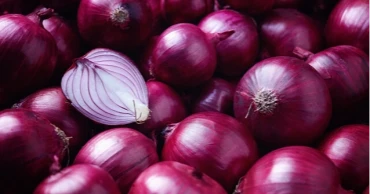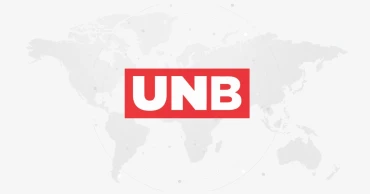Duty
Govt mulls cutting duty on rice import to tame prices: Officials
The government is considering reducing the import duty on rice in an effort to stabilise rice prices in the country.
Sources at the finance, commerce, and food ministries indicate that this decision is being contemplated due to recent floods that severely impacted paddy cultivation.
Major agricultural areas, including Chattogram, Feni, Noakhali, Laxmipur, and Cumilla, were flooded, and currently, Rangpur, Sherpur, Lalmonirhat, Netrokona, and Mymensingh are facing flood. These regions are vital rice producers for the country.
Read: Price hikes: Seven businesses fined in market monitoring drive
As a result, rice prices have risen significantly in the local market, causing difficulties for consumers.
According to commerce ministry sources, the price of various types of rice has increased by 8-10 percent recently.
“In this situation, the government aims to control prices and stabilize the market through rice imports. An initiative is underway to reduce the import duty on rice,”said a finance ministry official wishing not to be named.
Currently, rice imports are subject to a 62.50 percent customs duty. The food ministry has requested the National Board of Revenue (NBR) to lower this duty to 5 percent. A letter was sent by Joint Secretary Lutfar Rahman to the NBR on September 29.
The letter highlighted that the food ministry is working to ensure food security through improved management and the provision of safe and nutritious food. To support food security and incentivize farmers, a target of 500,000 tons of paddy and 14,700,000 tons of rice has been set for the current Boro season.
By August 31, 296,970 tons of paddy and 1,255,497 tons of rice had been collected. Currently, the government’s storage holds 12,64,740 tons of rice and 4,63,928 tons of wheat, totaling 1,754,199 tons of food grains.
However, after the floods, rice prices have risen sharply at the production, wholesale, and retail levels. In response, the Ministry of Food, Directorate of Food, National Directorate of Consumer Protection, and local administrations have increased market surveillance to control prices. Fair market monitoring and operations against illegal stockpiling are ongoing, but food grain prices have continued to rise.
Read more: Interim Government committed to curbing essential commodity prices by breaking syndicates: Mahfuj Alam
The food ministry also noted that recent floods in 14 districts have caused severe damage to Aoush, Aman seedlings, and Aman seedbeds. The demand for rice, coupled with reduced supply, could push prices even higher. Additionally, India’s wheat export ban, reduced wheat imports due to the Russia-Ukraine war, and rising global food prices have contributed to the surge in grain prices.
In this context, stabilising the rice market and increasing the government’s safety stock is essential. Private-level rice imports may also be necessary. The government has already received approval to import 500,000 tons of rice.
Although the global rice market is currently priced higher than the domestic market, reducing the existing rice import duty from 62.50 percent to 5 percent is seen as a necessary measure to maintain price stability.
Currently, rice imports are subject to a 25 percent customs duty, 25 percent regulatory duty, 5 percent advance income tax, 5 percent advance tax, 1 percent insurance, 1 percent landing charge, and 0.5 percent DF VAT.
Read more: 12 kg LPG cylinder price hiked by Tk 35
India recently reduced its rice export duty from 20 percent to 10 percent. If Bangladesh reduces its import duty to 5 percent, a combined duty of 15 percent will apply to rice imports from India.
The food ministry’s letter emphasised that this reduction in duty will encourage importers to meet domestic demand. The ministry has requested the NBR to take the necessary steps to reduce the duty on non-basmati parboiled rice and non-scented atap rice for both public and private imports.
1 year ago
India imposes 40% duty on onion exports effective today
The Revenue Department of the Indian Finance Ministry has imposed a 40 percent duty on onion exports to Bangladesh effective today (August 20, 2023), causing a hike in the price of the item mainly used as spice in local markets.
An Indian gazette notification signed by Amreeta Titus, deputy secretary of the Revenue Department under the Finance Ministry, said the duty will remain effective till December 31 this year. India imposed the duty for the first time.
Importers of Hili Land Port said earlier they paid no tax for importing onions from India. Due to the 40 percent duty, an extra Tk 10 per kg will have to be counted.
Read: Indian onions start reaching Satkhira, leading to prices easing down
On the other hand, each kg of onion is being sold at Tk 50 since this morning. Per kg of onion was being sold at Tk 39-47 just a day back.
They said Sunday is a weekly holiday in India and import of onion won’t be possible until the newly imposed duty is not paid, urging the Bangladesh government to look for alternative markets to import the item from.
Read: Indian onions start arriving through land ports as import resumes
Indian exporters said onion prices are soaring in the country and the government has imposed the duty to discourage exports.
They suspected that the prices may be hiked next month as substantial amounts of onions rotted due to excessive heat.
Read more: Govt to allow onion import from Monday: Agriculture Ministry
2 years ago
NBR works to impose additional duty on 330 goods
The National Board of Revenue (NBR) is working to impose additional duty on 330 products which are not essential goods, said commerce secretary Tapan Kanti Gosh.
He said no essential goods were imported in the country spending foreign exchange, Bangladesh Trade and Tariff Commission and NBR are assessing how much duty can be increased to discourage imports.
Read more: NBR supports Made in Bangladesh brand: Chairman
The commerce secretary told reporters around $1 billion can be saved by controlling those goods.
The government of Bangladesh had increased the duty on 135 products last May to discourage imports.
But even then the trade deficit has not reduced much. As a result, the Ministry of Commerce requested the Bangladesh Trade and Tariff Commission to verify that the duty can be increased on any other products, sources said.
Read more: NBR counting losses for rampant tax evasion
Following that request, the commission prepared a list of 330 products and sent it to the Ministry of Commerce.
Later the ministry sent it to the National Board of Revenue (NBR).
Read more: 20% year-on-year growth: NBR collected record Tk 8,733cr VAT in Aug
Mainly luxuries and less important national products dominate the list.
3 years ago
Bangladesh to seek duty cut on exports to growing Russian market: Shahriar
State Minister for Foreign Affairs Md Shahriar Alam has said Bangladesh would seek a duty cut on its exports to the Russian market during Russian Foreign Minister Sergei Lavrov’s upcoming visit in addition to seeking Russia’s support to resolve the Rohingya crisis and strengthen energy cooperation.
“Russia is gradually becoming a big market (for Bangladesh). Duty is the biggest impediment to enhancing trade. So Far I know there is still a 35 percent duty for shipments to Russia,” he said.
The State Minister, while talking to a small group of reporters at his office on Thursday, also talked about Bangladesh’s trade-related discussion with the Eurasian countries – Armenia, Belarus, Kazakhstan, Kyrgyzstan and Russia. “We hope Russia will help us as a big player.”
He said the Russian Foreign Minister will be here on a brief visit but they are working really hard to maximize his stay in Dhaka.
The Russian Foreign Minister is coming to Bangladesh on November 23 mainly to attend the 22nd IORA Council of Ministers (COM) meeting to be held in Dhaka on November 24.
Russia is a dialogue partner of the Indian Ocean Rim Association (IORA) while Bangladesh is the current chair of IORA.
Foreign Secretary Masud Bin Momen recently hinted that considering the current situation, Bangladesh will explore the possibility of cooperation in the energy sector with Russia during Russian Foreign Minister Sergei Lavrov’s planned official visit here.
Bangladesh will also discuss food grains supply and quick implementation of the projects that are in the pipeline including the Rooppur Nuclear Power Plant.
The Russian Foreign Minister will meet Prime Minister Sheikh Hasina apart from his bilateral meeting with Foreign Minister Dr AK Abdul Momen.
The visit will give us an opportunity to highlight our challenges and priority issues with Russia, Foreign Secretary Masud told reporters on Sunday.
Read more: Bangladesh abstains in UNGA vote calling on Russia to pay reparations
Masud also said Bangladesh wants Russia closer to Bangladesh to find a solution to the Rohingya crisis.
The Foreign Secretary, however, said there are still many days and reminded that Russia remains in an intensive situation.
"The invitation to take part in the IORA meeting for Minister of Foreign Affairs Sergey Lavrov has been received and the work is on as regards the possibility of this visit," an official at the Russian Embassy in Dhaka told UNB.
Earlier, Foreign Minister Momen invited his Russian counterpart to attend the 22nd IORA Council of Ministers (COM) meeting to be held in Dhaka on November 24.
Momen met his Russian counterpart last month in Astana, Kazakhstan on the sidelines of the CICA Summit and apprised him of the current situation of the Rohingya. He stressed the need for stronger international support for resolving the Rohingya crisis.
In August, Sergey Lavrov met with his counterpart Wunna Maung Lwin and other top Myanmar officials in Naypyitaw.
Read more:Despite differences, the G-20 summit ends with a condemnation of Russia
3 years ago







